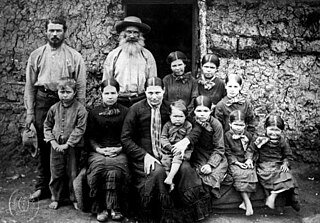
Boers are the descendants of the proto Afrikaans-speaking Free Burghers of the eastern Cape frontier in Southern Africa during the 17th, 18th, and 19th centuries. From 1652 to 1795, the Dutch East India Company controlled Dutch Cape Colony, but the United Kingdom incorporated it into the British Empire in 1806. The name of the group is derived from Trekboer then later "boer", which means "farmer" in Dutch and Afrikaans.

The South African Republic, also known as the Transvaal Republic, was an independent Boer republic in Southern Africa which existed from 1852 to 1902, when it was annexed into the British Empire as a result of the Second Boer War.

The Second Boer War, also known as the Boer War, Anglo–Boer War, or South African War, was a conflict fought between the British Empire and the two Boer republics over the Empire's influence in Southern Africa.

The Union of South Africa was the historical predecessor to the present-day Republic of South Africa. It came into existence on 31 May 1910 with the unification of the Cape, Natal, Transvaal, and Orange River colonies. It included the territories that were formerly part of the South African Republic and the Orange Free State.

The Orange River Colony was the British colony created after Britain first occupied (1900) and then annexed (1902) the independent Orange Free State in the Second Boer War. The colony ceased to exist in 1910, when it was absorbed into the Union of South Africa as the Orange Free State Province.

The Great Trek was a northward migration of Dutch-speaking settlers who travelled by wagon trains from the Cape Colony into the interior of modern South Africa from 1836 onwards, seeking to live beyond the Cape's British colonial administration. The Great Trek resulted from the culmination of tensions between rural descendants of the Cape's original European settlers, known collectively as Boers, and the British Empire. It was also reflective of an increasingly common trend among individual Boer communities to pursue an isolationist and semi-nomadic lifestyle away from the developing administrative complexities in Cape Town. Boers who took part in the Great Trek identified themselves as voortrekkers, meaning "pioneers", "pathfinders" in Dutch and Afrikaans.

The Ossewabrandwag (OB) was an Afrikaner nationalist organization with strong ties to National Socialism, founded in South Africa in Bloemfontein on 4 February 1939. The organization was strongly opposed to South African participation in World War II, and vocally supportive of Nazi Germany. OB carried out a campaign of sabotage against state infrastructure, resulting in a government crackdown. The unpopularity of that crackdown has been proposed as a contributing factor to the victory of the National Party in the 1948 South African general election and the rise of apartheid.

The Boer republics were independent, self-governing republics formed by Dutch-speaking inhabitants of the Cape Colony and their descendants. The founders – variously named Trekboers, Boers, and Voortrekkers – settled mainly in the middle, northern, north-eastern and eastern parts of present-day South Africa. Two of the Boer republics achieved international recognition and complete independence: the South African Republic and the Orange Free State. The republics did not provide for the separation of church and state, initially allowing only the Dutch Reformed Church, and later also other Protestant churches in the Calvinist tradition. The republics came to an end after the Second Boer War of 1899–1902, which resulted in British annexation and later incorporation of their lands into the Union of South Africa.

The Treaty of Vereeniging was a peace treaty, signed on 31 May 1902, that ended the Second Boer War between the South African Republic and the Orange Free State on the one side, and the United Kingdom on the other.
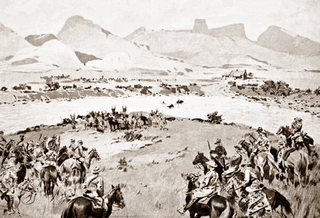
The Maritz rebellion, also known as the Boer revolt, Third Boer War, or the Five Shilling rebellion, was an armed insurrection in South Africa in 1914, at the start of World War I. It was led by Boers who supported the re-establishment of the South African Republic in the Transvaal. Many members of the South African government were themselves Boers who had fought with the Maritz rebels against the British in the Second Boer War, which had ended twelve years earlier. The rebellion failed, with 124 rebels killed and 229 wounded out of 12,000. The surviving ringleaders received heavy fines and prison terms. One of them, Jopie Fourie, was executed.
Jan Christiaan Smuts, OM was a prominent South African and Commonwealth statesman and military leader. He served as a Boer general during the Boer War, a British general during the First World War and was appointed field marshal during the Second World War. In addition to various cabinet appointments, he served as prime minister of the Union of South Africa from 1919 to 1924 and from 1939 to 1948. He played a leading part in the post war settlements at the end of both world wars, making significant contributions towards the creation of both the League of Nations and the United Nations.
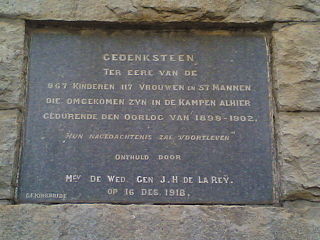
The Bittereinders or irreconcilables were a faction of Boer guerrilla fighters, resisting the forces of the British Empire in the later stages of the Second Boer War (1899–1902).
The military history of South Africa chronicles a vast time period and complex events from the dawn of history until the present time. It covers civil wars and wars of aggression and of self-defence both within South Africa and against it. It includes the history of battles fought in the territories of modern South Africa in neighbouring territories, in both world wars and in modern international conflicts.

During the Napoleonic Wars, the Cape Colony was annexed by the British and officially became their colony in 1815. Britain encouraged settlers to the Cape, and in particular, sponsored the 1820 Settlers to farm in the disputed area between the colony and the Xhosa in what is now the Eastern Cape. The changing image of the Cape from Dutch to British excluded the Dutch farmers in the area, the Boers who in the 1820s started their Great Trek to the northern areas of modern South Africa. This period also marked the rise in power of the Zulu under their king Shaka Zulu. Subsequently, several conflicts arose between the British, Boers and Zulus, which led to the Zulu defeat and the ultimate Boer defeat in the Second Anglo-Boer War. However, the Treaty of Vereeniging established the framework of South African limited independence as the Union of South Africa.

The Boer Commandos or "Kommandos" were volunteer military units of guerilla militia organized by the Boer people of South Africa. From this came the term "commando" into the English language during the Second Boer War of 1899–1902 as per Costica Andrew.

The military history of Australia during the Boer War is complex, and includes a period of history in which the six formerly autonomous British Australian colonies federated to become the Commonwealth of Australia. At the outbreak of the Second Boer War, each of these separate colonies maintained their own, independent military forces, but by the cessation of hostilities, these six armies had come under a centralised command to form the Australian Army.
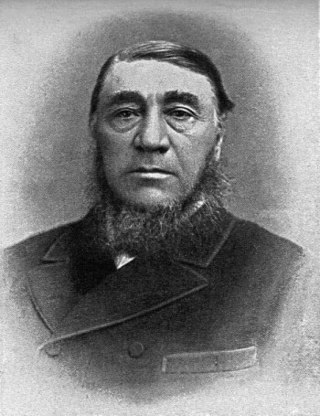
Kruger Day or Heroes' Day was a official public holiday in South Africa from 1882 to 1899 and again from 1952 to 1994, which celebrated annually on 10 October. The day was named after Paul Kruger, a South African politician who served as president of the South African Republic; the holiday celebrated his birthday on October 10. The day was used to underline the values and principles of the Afrikaner people.
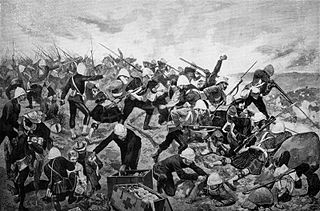
Majuba Day(Afrikaans: Majubadag) was a major annual national celebration on 27 February in the South African Republic in the period between the First and Second Boer Wars. The day was named after the Battle of Majuba Hill where on 27 February 1881 the main battle of the First Boer War took place.

South African Argentines or Boer Argentines are Argentine citizens of South African descent or South African-born people residing in Argentina.
Boerehaat is an Afrikaans word that means "ethnic hatred of Boers" or Afrikaners as they became known after the Second Boer War. The related term Boerehater has been used to describe a person who hates, prejudices or criticises Boers or Afrikaners.
















